#american writing
Text
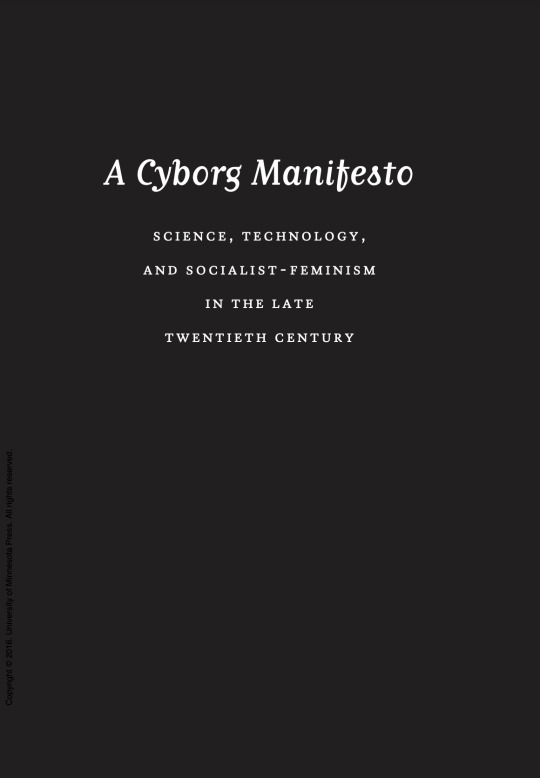
Haraway, 1985
Donna Haraway’s concept of the cyborg is a radical archetype for emancipatory self-construction that models conscious reshaping of socially imposed identities. The cyborg represents the plasticity of our socially constructed identities: our ability to transcend the limits of prefabricated identities and overwrite oppressive, socially imposed roles. Understanding social construction through this lens gives social workers and clients the conceptual tools to deconstruct rigid identities—particularly those of gender identity—imposed by society. These identities are the subject of active political contestation; they are the product of economic, social, and cultural relations and institutions. The concept of the cyborg provides an emancipatory model that denaturalizes and destabilizes rigid essentialist binaries and instead recognizes the chimeric multiplicity of the individual.
Abstract by Nicholas D. Tolliver, 2022
https://academiccommons.columbia.edu/doi/10.7916/mar4-1k48
We are all cyborgs: How machines can be a feminist tool
By Nour Ahmad
Upon hearing the word “cyborg”, perhaps the first thing that comes to mind is a fusion of human and machine. Our imagination might even drift to an image of Frankenstein’s monster or a depiction such as Major Mira Killian in the anime Ghost in the Shell. A cyborg is actually just a hybrid — part mechanism, part organism. The cyborg, as a concept, is associated with scientist, innovator and musician Manfred Clynes, who deployed it in his 1960’s article Cyborgs and Space, where he argued for altering the human body to make it suitable for space travel.
We, thus, might perceive this concept as being in the future, far from the here and now. However, Donna Haraway, an American biologist and feminist, claims the opposite. She believes that we are all already cyborgs. More significantly, she posits that the advent of cybernetics might help in the construction of a world capable of challenging gender disparities, a proposal she made in her 1985’s essay titled A Cyborg Manifesto.
How, then, would the notion of cybernetics make for a post-gender understanding of the world? And how would it be a tool for women to undermine the roles imposed on them by society?
Cyborgs and human nature
The investigation into human nature has always been an essential pursuit for schools of philosophy and a basic assumption made by political ideologies. The answer to the question “what does it mean to be a human?” determines the orientation of a political movement or an ideology. Patriarchal societies have historically adopted an essentialist interpretation of human nature, so as to justify male domination over women. It makes the claim that each of the sexes has a specific role to play and, ultimately, considers the feminine to be secondary to the masculine and thus subjugates women. In such societies, predetermined sets of values and behavioural patterns are strictly enforced on both sexes.
In A Cyborg Manifesto, Haraway explores the history of the relationship between humans and machines, and she argues that three boundaries were broken throughout human history which have changed the definition of what is deemed cultural or otherwise natural. The first such boundary was between humans and animals, and was broken in the 19th century after the publishing of On the Origin of Species by Charles Darwin. As the biological connection between all organisms was discovered and publicised in this book, it served as a rejection of notions of human exceptionalism and superiority, turning the evolution of the organism into a puzzle. It also introduced the concept of evolution as necessary for understanding the meaning of human existence.
The second boundary-breaking event relates to the relationship between machines and organisms (be they human or animal). As the industrial revolution arrived, all aspects of human life became mechanised. As human dependence on machines surged, machines became an inseparable part of what it is to be human; an extension of human capability.
As for the third boundary, it concerns the technological advancement that has produced evermore complex machines which can be miniscule in size or, in the case of software, altogether invisible. First came developments in silicon semi-conductor chips that now pervade all of life’s domains. As these machines are practically invisible, it is then difficult to decide where the machine ends and humans start. This machine thus represents culture intruding over nature, intertwining with it and changing it in the process. As a result, boundaries between the cultural and the natural became more and more intangible.
“…the advent of cybernetics might help in the construction of a world capable of challenging gender disparities.”
In this context, Haraway uses the cyborg as a model to present her vision of a world that transcends sexual differences, expressing her rejection of patriarchal ideas based on such differences. Because a cyborg is a hybrid of the machine and the organism, it merges nature and culture into one body, blurring the lines between them and eliminating the validity of essentialist understandings of human nature. This includes claims that there are specific social roles reserved for each of the sexes which are based in biological differences between them, in addition to other differences such as age or race.
You are cyborg!
Since first practicing agriculture, using tools to increase production and developing language and writing, humans have been able to boost capabilities and expand their potential. Today, the implantation of artificial organs has been a vital development in the field of medicine, while the smartphone, for example, serves as an extension of human memory, our senses and our mental functions as well. The advancements made in GPS and communication technologies allow us to be present remotely and even grant us the ability to exist outside of the limitations of our time and space frameworks. All these aspects of technology are an expansion of human beings and an augmentation of our physical and cognitive abilities.
Taking all of this into consideration, the cyborg seems present here and now. In an interview with Wired magazine, Haraway said that being a cyborg does not necessarily mean having silicon chips implanted under one’s skin or mechanical parts added to one’s body. The implication is, rather, that the human body has acquired features that it could not have been able to develop on its own, such as extending life expectancy. Indeed, in our current state, cybernetics exist around us, and in simpler forms than futuristic visions. Even maintaining our physical fitness is today cybernetic, from the use of exercise machines to the many food supplements available as well as clothing and footwear engineered for athletic activity. Moreover, the culture surrounding fitness could not have existed without viewing the human body as a high-performance machine whose performance can be improved over time.
On the other hand, a cyborg is “a creature of social reality as well as a creature of fiction” according to Haraway’s manifesto. The internet has brought about profound changes in human consciousness and human psychology. Virtual reality does not only surround us, but it also involves us in its own processes. The social dimension to technology plays a role in the construction of our identities, whether through online games, discussion forums or social media, where our identities can be as multiple as the online platforms that we use.
Therefore, we can now say that we are all cyborgs, as technology “is not neutral. We’re inside of what we make, and it’s inside of us,” as Haraway formulates it. In modern life, the link between humans and technology has become inexorable to the extent that we cannot tell where we end and the machines begin.
Cybernetics and feminism
Feminist issues lie at the heart of the concept of cybernetics, since the latter’s prospects erase major contradictions between nature and culture, such that it is no longer possible to characterise a role as natural. When people colloquially use the word “natural” to describe something, this is an expression of how they view the world, but also a normative claim about how it should be as well as a statement on what cannot be changed.
In this context, the cybernetics erase gender boundaries. For generations, women have been told that their “nature” makes them weak, submissive, overemotional and incapable of abstract thought, that it was “in their nature” only to be mothers and wives. If all these roles are “natural” then they are unchangeable, Haraway said.
Conversely, if the concept of the human is itself “unnatural” and is instead socially constructed, then both men and women are also social constructs, and nothing about them is inherently “natural” or absolute. We are all [re]constructed when given the right tools. In short, cybernetics have allowed a new distinction of roles, based on neither sex nor race, as it provided humans the liberty and agency to construct themselves on every level.
“Because a cyborg is a hybrid of the machine and the organism, it merges nature and culture into one body, blurring the lines between them and eliminating the validity of essentialist understandings of human nature. This includes claims that there are specific social roles reserved for each of the sexes which are based in biological differences between them, in addition to other differences such as age or race.”
Therefore, through her notion of the cyborg, Haraway calls for a new feminism that takes into account the fundamental changes that technology brings to our bodies, to reject the binaries that represent the epistemology of the patriarchy —binaries such as body/psyche, matter/spirit, emotion/mind, natural/artificial, male/female, self/other, nature/culture. Technology is simply one of the means by which the boundaries between identities are erased. Cyborgs, in addition to being hybrids, transcend gender binaries and can thus constitute a way out of binary thinking used to classify our bodies and our machines and accordingly “lead to openness and encourage pluralism and indefiniteness.”
Haraway’s idea is based on a full cognisance of the ability of technology to increase the scope of human limitation and thus open opportunities for individuals to construct themselves away from stereotypes. And while Haraway describes A Cyborg Manifesto as an ironic political myth that mocks and derides patriarchal society, she still claims that cybernetics lay the foundation for a society in which we establish our relations not on the basis of similarity, but on harmony and accord.
(mediasupport.org)
#donna haraway#contemporary philosophy#american philosophy#queer theory#feminist philosophy#politics resource#politics texts#philosophy resource#philosophy texts#80s#90s#2000s#2010s#a cyborg manifesto#american writing
9 notes
·
View notes
Text
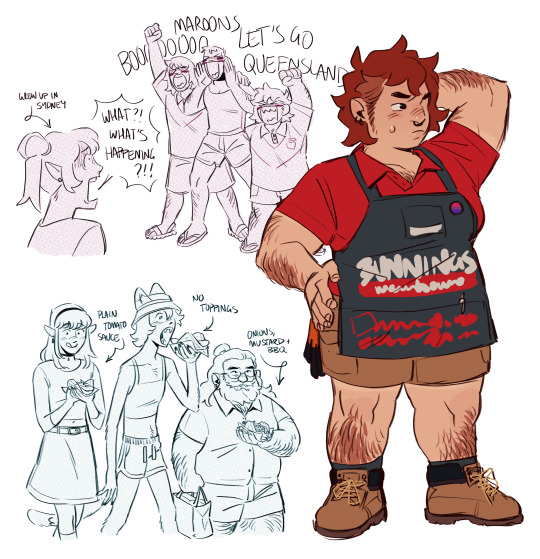
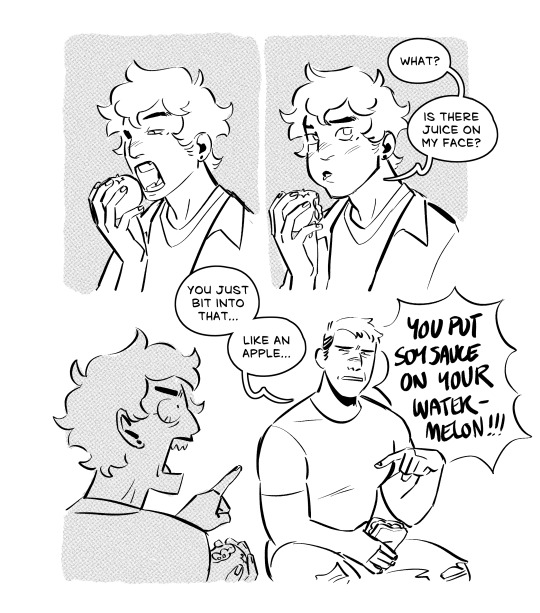

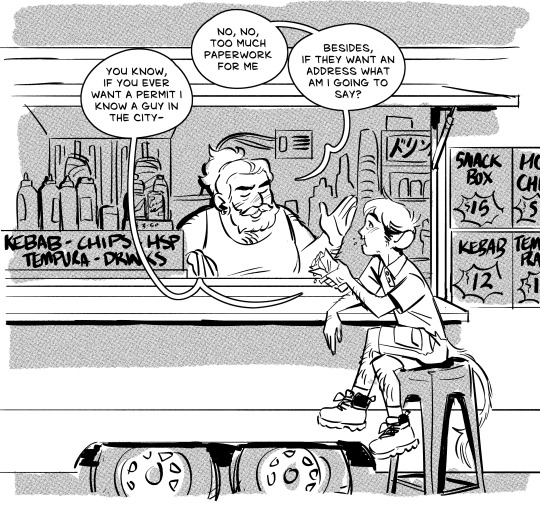
modern au but set in brisbane. is this anything
#TRICK QUESTION its everything. to me#dungeon meshi#delicious in dungeon#marcille donato#senshi of izganda#laios touden#kabru#falin touden#izutsumi#farcille#chilchuck tims#namari#my art#dunmesh#brisbane meshi#americans have all the fun putting their modern aus wherever they live. well its my turn. namari is a caboolture bogan i know this#ive thought about this So much i need to write down all my notes somewhere
21K notes
·
View notes
Text

Kate Baer, from And Yet: Poems; “Idea”
[Text ID: “I will enjoy this life. I will open it like a peach in season, suck the juice from every finger, run my tongue over my chin. I will not worry about clichés or uninvited guests peering in my windows. I will love and be loved. Save and be saved a thousand times. I will let the want into my body, bless the heat under my skin. My life, I will not waste it. I will enjoy this life.”]
#kate baer#hope#excerpts#writings#literature#poetry#fragments#selections#words#quotes#poetry collection#typography#american literature#american poetry
12K notes
·
View notes
Text
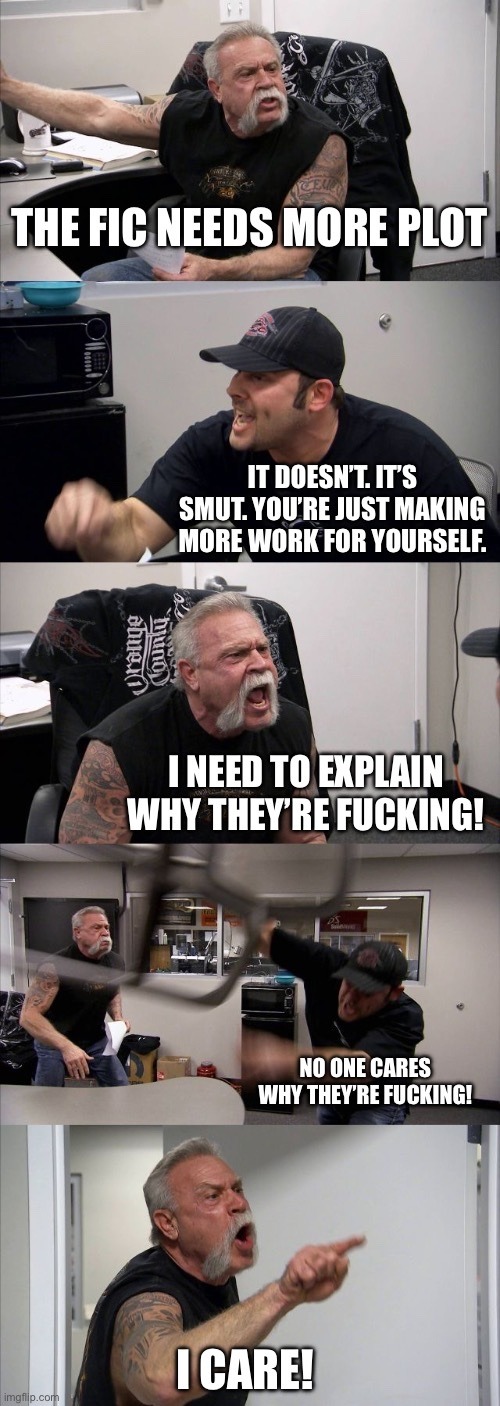
My constant struggle when writing PWP
#fanfiction#fanfiction writer#fanfiction writing#writing#writing struggles#writing fanfic#pwp fics#ofmd fanfic#writer problems#american chopper#writing memes
38K notes
·
View notes
Text
Writing Tips
Punctuating Dialogue
✧
➸ “This is a sentence.”
➸ “This is a sentence with a dialogue tag at the end,” she said.
➸ “This,” he said, “is a sentence split by a dialogue tag.”
➸ “This is a sentence,” she said. “This is a new sentence. New sentences are capitalized.”
➸ “This is a sentence followed by an action.” He stood. “They are separate sentences because he did not speak by standing.”
➸ She said, “Use a comma to introduce dialogue. The quote is capitalized when the dialogue tag is at the beginning.”
➸ “Use a comma when a dialogue tag follows a quote,” he said.
“Unless there is a question mark?” she asked.
“Or an exclamation point!” he answered. “The dialogue tag still remains uncapitalized because it’s not truly the end of the sentence.”
➸ “Periods and commas should be inside closing quotations.”
➸ “Hey!” she shouted, “Sometimes exclamation points are inside quotations.”
However, if it’s not dialogue exclamation points can also be “outside”!
➸ “Does this apply to question marks too?” he asked.
If it’s not dialogue, can question marks be “outside”? (Yes, they can.)
➸ “This applies to dashes too. Inside quotations dashes typically express—“
“Interruption” — but there are situations dashes may be outside.
➸ “You’ll notice that exclamation marks, question marks, and dashes do not have a comma after them. Ellipses don’t have a comma after them either…” she said.
➸ “My teacher said, ‘Use single quotation marks when quoting within dialogue.’”
➸ “Use paragraph breaks to indicate a new speaker,” he said.
“The readers will know it’s someone else speaking.”
➸ “If it’s the same speaker but different paragraph, keep the closing quotation off.
“This shows it’s the same character continuing to speak.”
#writing#writing tips#story ideas#reference#knowledge#writing reference#writerslife#writer things#writeblr#english#grammar#commas#dialogue#punctuation#american english
76K notes
·
View notes
Text

#mine#reminder#my words#photo#photography#photographers on tumblr#texas#southern gothic#typography#western gothic#collage#rural#rural gothic#edit#south west#western#typo#writing#americana#american gothic#art#digital#text#nature#landscape#country#gothic#small town#small town gothic#♡
7K notes
·
View notes
Text
cuddling
summary: sometimes you just need to be wrapped up in your boyfriend’s arms
word count: 382
series masterlist ||| set pre-tlt |||

“connor, i swear to the gods,” luke hears you shout from the back of the hermes cabin.
his eyes widen, and he’s rushing past his siblings, who have all crowded around the beds closest to the doors, to reach you. thankfully, he arrives at the scene right before you pummel connor to the ground. he steps around his younger brother to wrap his arms around your shoulders, pulling you into him.
your fingers clutch at his camp shirt, and you lean down so your forehead rests on his shoulder. you breathe a sigh of relief, eyelashes fluttering closed as your shoulders relax. luke kisses down the side of your face, from your temple to your jaw.
“let’s go lay down,” he mumbles against your ear.
you make a noise of agreement, and luke leads you to his bunk in the back of the cabin. connor’s mouth falls open, and he looks like he’s about to protest, but a sharp glare from his older brother quickly shuts him up.
you kick off your shoes, discarding them next to luke’s bed. luke, knowing exactly what you’ll ask for, hands you a pair of his pajama pants. you smile softly, but it’s not as bright or vibrant as it usually is when you’re with him. you slip off your jeans, and pull his pants up to cover your legs. then, you join him on top of the covers of his bed.
you’re laying side by side, which is tough in the twin sized bunks, but you already feel happier. his arm wraps around your waist, pulling you impossibly closer. your nose brushes against his everytime you take a breath, and the noises of the hermes cabin fade to the background as you soak him up.
he places a kiss on your forehead, “you can nap if you want.”
you nod, stifling a yawn as you shift in his bed to get comfortable. the end position is him on his back, with your leg thrown over his hips and head resting on his chest, right where his heart beats. his right hand cradles you into him, fingers tracing down your spine. you hum in satisfaction, nuzzling further into his chest.
you close your eyes, and within a matter of minutes, he hears your breathing even out.

taglist: @percabethlvr @iwantahockeyhimbo @hottiewifeyyyy @loveryoushouldcomeoverr @maraschinocherry3 @used2beeeeee @harrysnovia @cami-is-reading @mxtokko @cxcilla @obxstiles
#luke castellan#luke castellan x reader#luke castellan blurb#luke castellan fluff#pjo luke#luke castellan pjo#all american bitch series#cobrakaisb writing
759 notes
·
View notes
Text
The stress was beginning to seep in. Your eyebags becoming more visible by the day. No one could tell you were more tired than the past week.
You were more quiet and less aggressive in your talking. You seem to have lost your spirit in a way, but of course, the man in the mask figured it out.
Ghost eyed you on the other side of the room. You were bobbing your head, nearly falling asleep before being shaken awake by the slight fall of your body.
You were being distracted by the lights and paid no mind to Ghost's wandering eyes.
It wasn't until around 2100 (9:00pm) when he knocked at your door. You weren't asleep yet. Your light was still on.
Opening the door you asked, "Is something wrong?"
You hadn't changed out of uniform and still seemed out of it.
"Why aren't you asleep?"
"Why are you awake?"
You snapped back at him. You weren't in the mood. You've been tolerable all day, no arguments or fights, but it's clear he came to ruin that.
He stared at you in silence. The mask made him more intimidating which caused you to fess up.
You ran your hands through you hair, frowning in disgust at the knots in your hair.
"Just some family problems is all."
"Losing sleep over your family?"
You sighed, "What do you need?"
"Need you to sleep so we could complete this mission."
"I'm not broken, I can still do the mission."
Silence permeated the hall, other than the occasional fizzle from that one light the base swears isn't broken or haunted.
"Can I come in?"
The door widened a foot further, allowing the masked man inside. You didn't understand why you would let him in. You don't let anyone in your room, at least, not for silly matters like this.
He followed you further into your room after shutting the door, and settled on the side of your bed. You didn't have time to question it before you fell.
Collapsing on the spot, Ghost caught you before the ground could do actual damage to your body.
I guess the sleep had caught up to you, just as Ghost had caught you.
Sleep truly is not for the weak. Stay healthy, guys.
.............................................................................................................
masterlist
#did i use tolerable right cuz i prolly didnt but you know my mood be like this rn#i sometimes forget not all ppl know abt the 24 hr clock or as some of the americans call it the military clock#simon ghost riley#call of duty#cod#cod mw2#ghost simon riley#simon riley#simon riley x reader#simon riley x you#simon ghost x reader#simon ghost x you#ghost mw2#ghost x reader#x reader#x gn reader#gn reader#reader imagine#reader pronouns unstated#simon ghost riley x reader#simon riley call of duty#call of duty x reader#tired reader#reader faints#I made the reader faint because i was too lazy to continue cuz i am in fact tired rn just as reader is#synthe4u#synthe4u writing#gonna bawl and cry because i hate doing work but i will write stuff like this but the writing at that good#i love other ppls writings#remembering why i wrote like two other things jst bc one person is like keep up the writing
584 notes
·
View notes
Text

I wish I could eat dirt the way you do. Clamp it between my wisdom teeth, spit out the worms and turn the mulch into stone and gem and something. I wish I could make
#appalachain gothic#southern gothic#art#girlblogging#writeblr#writers and poets#writing#blogging#short poem#short story#coquette#girl blogger#dollette#girlblog#art block#small town america#rural gothic#small town#rural america#american gothic#midwest gothic#western gothic#religious imagery#religious iconography#religious issues#dear diary#diary entry#journal#digital diary
2K notes
·
View notes
Text
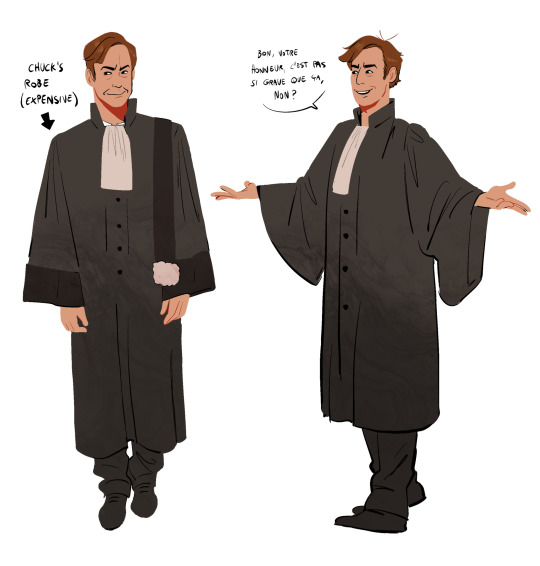

Thinking about better call saul if the action took place in france just because I wanted to see them in cunty robes lmao. More thoughts under the cut!
Obviously the action and the whole premise of bcs/brba wouldn't work in france (legal system aside, the whole cartel and walter white storyline would have to suffer major changes due to social security and the mexican cartel well. not existing here stricto sensu). But let's talk about the real Important Stuff : their names
I think Howard Hamlin would work well as Edouard Hamelin. He looses the cool HH initials yes, but it works really well as a genuine french name imo, and Howard/Edouard are pretty close phonetically
Chuck could still be called Charles without any realism issue, but he'd be nicknamed Charlie rather than Chuck because that's what a french person would go for... nicknames don't work the same, yeah
Kimberly Wexler and James McGill, I have no idea lmao. James when translated becomes Jacques, but it's such a boomerish uncool name that I cannot resolve myself to call my boy like that. It's also one generation too old. Jimmy being born in '60 could technically be called Jacques, but it'd be old-fashioned, as it's a name mostly given to the kids of the decade that came before him. McGill is an irish name, so something funny could be making Jimmy a breton with a funky last name like Gall/LeGall ? That's hilarious to me. But who knows.
Saul Goodman is a pun, so this is even harder for me to conceptualize. Saul's marketing would definitely not work in france at all, as no one would realistically hire a lawyer with a puny name and such chaotic displays (+ I think ads for legal démarchage are illegal mind you). However, let's have a crack at it. It would have to be a pun based off an expression similar to "it's all good man", or implying something positive and familiar... I need to think on that one.
#saul goodman#jimmy mcgill#howard hamlin#kim wexler#better call saul#bcs#breaking bad#brba#french au#my art#fanart#please help if you wanna participate to their naming...... im struggling as you can see#what i love about bcs is how deeply american it is but im just imagining this for fun lol. and also for the outfits#cause come on. any profession immediately becomes better with a Special Outfit involved#i should write about the robes too.... i have headcanons about the cast....#so much to say!!!!
824 notes
·
View notes
Text



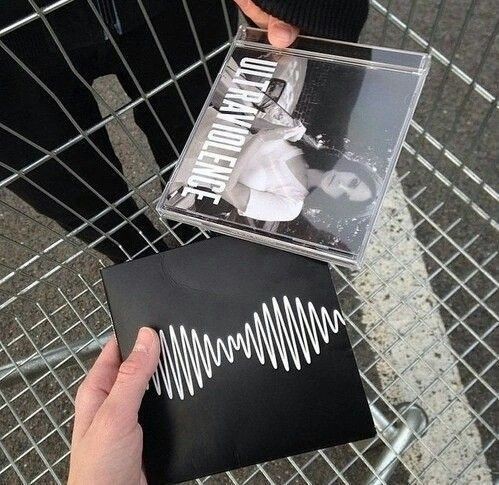


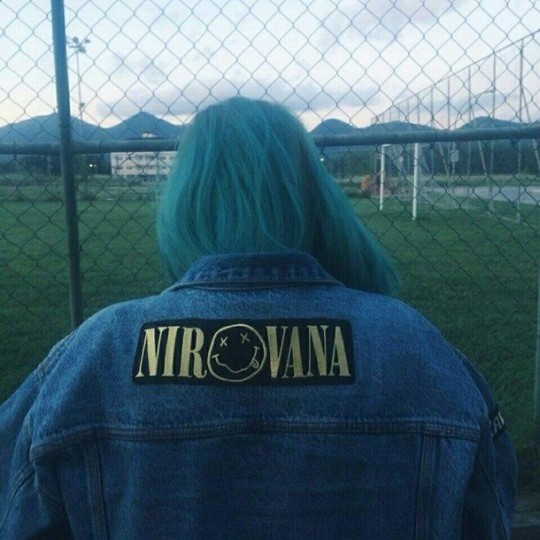


Whatever happened to 2014 Tumblr... miss her
#soft grunge#2014 grunge#american apparel#2014core#2014 nostalgia#aesthetic#music#sad poem#writing#frases sad#2014 revival#tumblr 2014#2014 aesthetic#2014 tumblr#2014 indie#grunge outfit#grunge tumblr#grunge aesthetic#grunge girl#tumblr outfit#tumblrcore#old tumblr
3K notes
·
View notes
Text
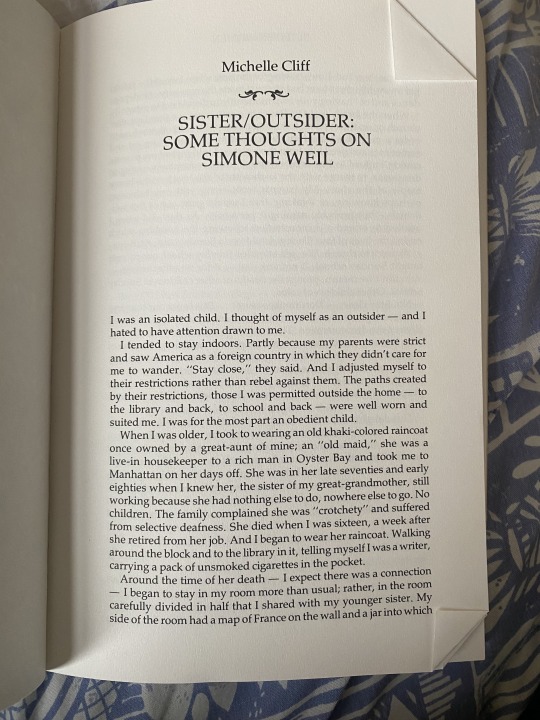
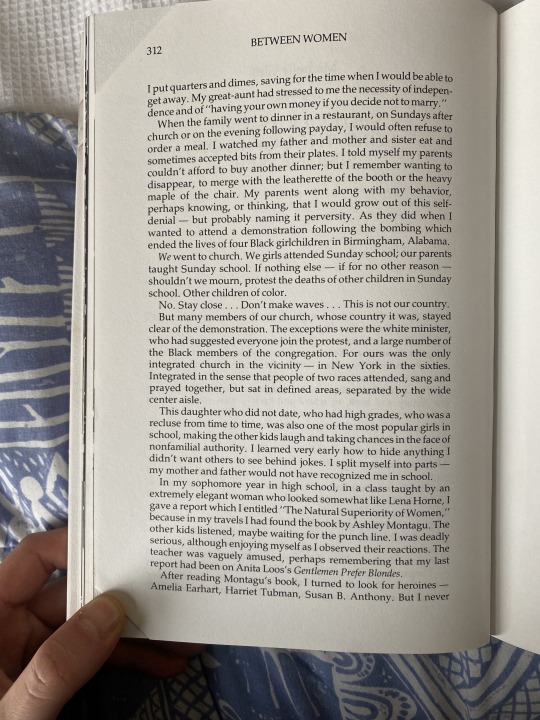








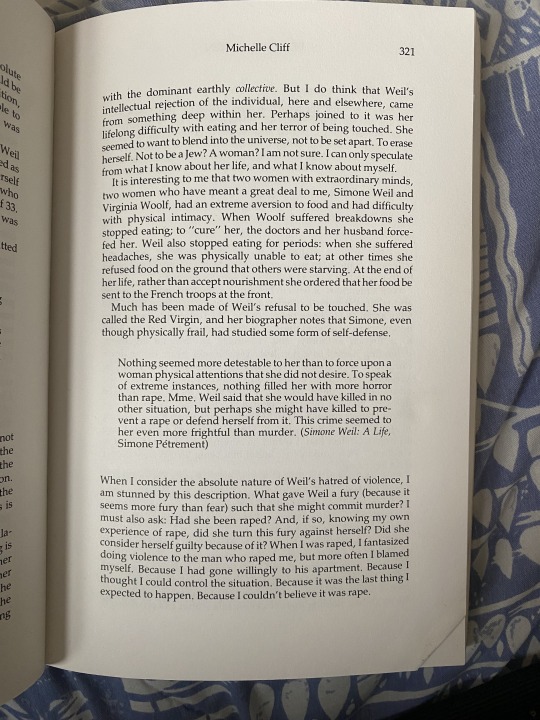

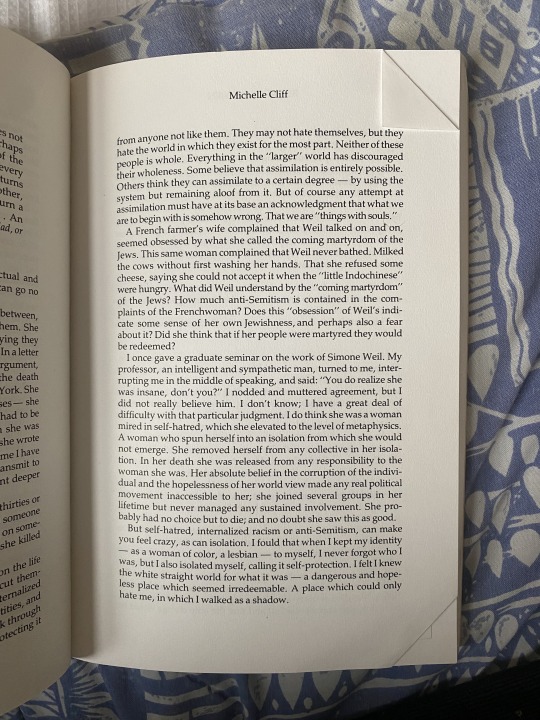
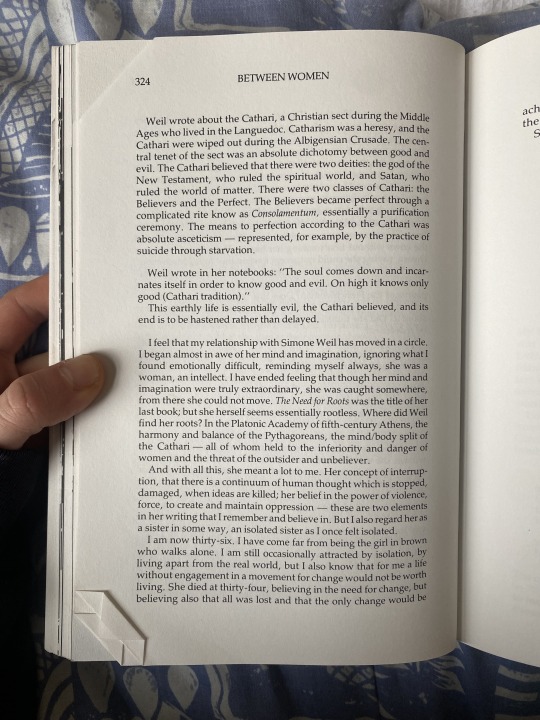
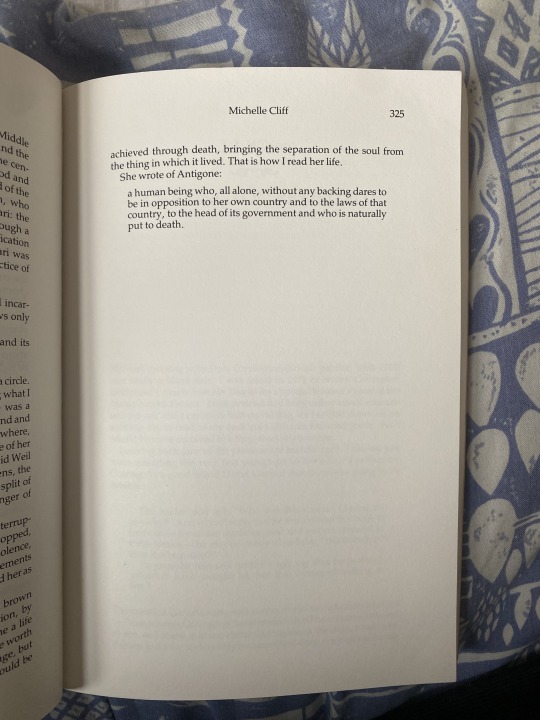
Sister/Outsider: Some thoughts on Simone Weil, Michelle Cliff
I found this essay in Between Women: Biographers, Novelists, Critics, Teachers, and Artists Write About Their Work on Women, edited by Carol Ascher, Louise DeSalvo, and Sara Ruddick, 1993 (originally published 1984).
I will return to this, but I'm just so grateful to read it. Cliff's experience, reflections, the insight about her seminar professor...
Separately, I attended a discussion on Weil last night which was so painful and shit - two male academics belittling her direct actions, her relationship to God, an obsession with describing her 'naivety'. It was so rank and absurd to watch these two berks infantilise a figure like Weil using a very, very thin sheet of scholarship over their misogyny.
Rant over, gratitude for Cliff's essay. Looking forward to reading the rest of the contributors.
#simone weil#michelle cliff#between women#american writing#queer theory#philosophy resource#to read#1990s#1980s#feminist writing#queer art#queer resource
5 notes
·
View notes
Quote
Listen to the wind it talks. Listen to the silence it speaks. Listen to your heart it knows.
Native American Proverb
#Native American Proverb#motivation#quotes#poetry#literature#relationship quotes#writing#original#words#love#relationship#thoughts#lit#prose#spilled ink#inspiring quotes#life quotes#quoteoftheday#love quotes#poem#aesthetic
413 notes
·
View notes
Text

Kate Baer, from And Yet: Poems; “40”
[Text ID: “because sometimes it is easier to / write yourself out of the play / than to face another breakfast.”]
#kate baer#excerpts#writings#literature#poetry#fragments#selections#words#quotes#poetry collection#typography#american literature#american poetry
8K notes
·
View notes
Text
749 notes
·
View notes
Text
"he would not say that" except it's "they would NOT use/go by that nickname"
#writing tag#fandom#ok to rb#my greatest pet peeve as a teen was people trying to shorten hermione's name#by using the WORST nicknames known to man#also american characters calling each other Love#it's just not as common here and is almost always used for a romantic partner and is kinda cheesy#EDIT: I AM VERY GUILTY OF THIS ALL THE TIME
3K notes
·
View notes